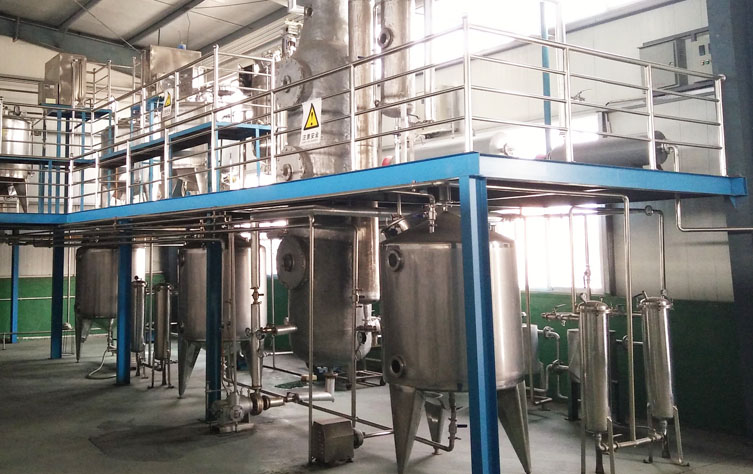New progress in oil refining process – edible oil refinery
The edible oil refinery industry has experienced significant growth over the past decade and has become an important sector. However, due to the low prices of both crude and refined oil, refineries face slim profit margins. As a result, production costs have become a determining factor in profitability. Furthermore, the increasing number of environmental protection policies has forced manufacturers to minimize waste discharge, particularly solid waste such as waste bleaching earth in decolorization.
Moreover, the demand for higher quality cooking oil has intensified. Besides good sensory quality, including no smell, taste, pale colour and excellent appearance, cooking oil must also meet various nutrition indicators. These include a small amount of trans acid, rich natural vitamins and antioxidants, low polymer and foreign pollutants such as heavy metals and pesticides. Meeting these requirements is crucial for ensuring the stability of the cooking oil, including its oxidation stability, freeze stability and shelf life. Overall, the edible oil refining industry faces numerous challenges that require a professional approach to overcome.

Oil Refining Process: Advancements and Innovations
Oil refining is a complex process that involves several stages to produce high-quality refined oil. The refining process includes physical and chemical methods, and the choice of method depends on the quality of crude oil. In recent years, there have been significant advancements and innovations in the refining process, which have improved the overall quality of crude oil and reduced environmental pollution.
Physical Refining vs. Chemical Refining
Physical refining and chemical refining are two primary methods used in the refining process. Physical refining is used for stearin such as palm oil and cocoa butter, while chemical refining is popular for soft grease refining, such as soybean oil and vegetable oil. However, both physical and chemical refining can be used for sunflower oil and cottonseed oil.
The choice of physical or chemical refining depends on the quality of crude oil. With refineries located closer to oil extraction factories, the overall quality of crude oil has improved significantly. Modern soft grease refineries are equipped with both physical and chemical refining processes, with physical refining being the preferred choice.
Advancements in Degumming Process
Degumming is an essential process in physical refining, which removes phospholipids from crude oil. The degumming process has been developed over the years, with several innovations to improve its effectiveness. Special mixtures, reactants, additives, or enzymes are often added to improve the degumming process.
The acid reaction classification degumming principle is widely used in the degumming process. This involves adding acid to generate hydratable phospholipids, followed by adjusting the pH value by adding caustic soda to improve separation conditions and reduce oil loss. Several degumming processes have been developed based on this principle, including Unilever’s super-joint degumming process, Vandemoortele’s TOP degumming process, Lurqi’s ENZYMAX process, DeSmet’s IMPAC degumming process, and IPH’s ORP process.
Innovations in Chemical Refining
Chemical refining has its disadvantages, such as dirty soap deposition and poor discharging. However, better refining processes have been developed to overcome these challenges. For instance, Agrotech company has developed the potassium hydroxide refining method, where free fatty acids turn into potassium soap that can be used as fertilizer. Oxychem/Tamu company has also developed the sodium silicate refining process, where soap in oil is separated by filtration instead of centrifugation.
Decoloring Technology Advancements
Decoloring technology has been developed to reduce the amount of bleaching clay used in the refining process. Solid waste is becoming the biggest environmental pollution source in the refining process; thus, reducing bleaching clay consumption is essential. Several decoloring technologies have been developed based on multistage decoloring principles.
Some decoloring processes achieve decoloration in two or even three steps, while some use diatomaceous earth for pre-decolorization to reduce bleaching clay consumption. In some processes, waste clay is reused for pre-filtration, while some use complete reverse technology for decoloring. Industrial production has reported a 30 to 50 percent saving in bleaching earth consumption due to diatomaceous earth pre-decolorization.
Deodorization Innovations
Deodorization is the final and most crucial stage in the refining process. Most deodorization processes are continuous; however, they lack flexibility in multi-item small-sized production conditions. DeSmet’s multistock process has solved this problem, where refined oil products’ replacement has almost no pollution, and oil can be replaced up to 20 times a day.
The oil refining industry is experiencing a significant shift due to the introduction of new technologies. This shift is expected to lead to a surge in research and creative innovation over the next decade. One notable example of this is the superfine microfiltration membrane technology, which has the potential to revolutionize oil processing. The successful industrialization of such technologies will open up new opportunities for physical refining of all kinds of oil.
Another promising area for future oil refinery plants is the development of non-edible oils. The high cost of mineral oil and the renewable nature of vegetable oils have attracted considerable attention. This has led to increased interest in the chemical application of biofuels, fatty acid derivatives, and other oils.
It is certain that oil processing technology will continue to improve in various directions. However, the most important aspect that must be maintained is stable quality assurance to ensure maximum benefits. As a professional machinery manufacturer with over 30 years of experience in oil refining equipment, Huanyang has developed a high-efficiency, well-designed, compact, easy-to-operate, and easy-to-maintain oil refining production line. Huanyang’s refining machine offers high quality, high efficiency, and low cost advantages that are loved by most oil refineries. Over the years, our products have been exported to Asia, Africa, South America, and other regions.
We are committed to creating the best oil refining program for you. Our technical staff will be based on your production capacity requirements, for you to choose the appropriate tonnage products. If you have any questions about refineries, you can contact us in our site.

